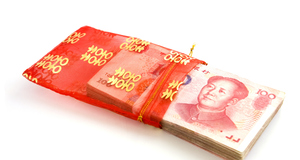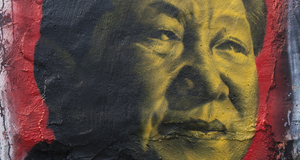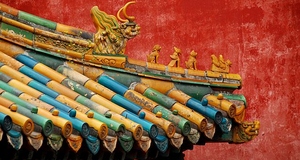From Cornell International Affairs Review VOL. 1 NO. 1China-Africa Interaction: Prospects for a Strategic PartnershipChina-Africa Co-operation: Opportunities and ChallengesSince the end of the Cold War, Sino–African co-operation has witnessed new and positive changes. In the new era, the common interests between the two sides are increasing and the potential for co-operation is expanding. This recent strengthening of China–Africa relations is not accidental phenomenon: it reflects the reality that Africa needs China, while China needs Africa even more. If China is to play an increasingly important role in the international arena, it will need to expand co-operation with African countries, in order to engage more actively and constructively in world affairs. First, in order to implement the New Partnership for Africa’s Development (NEPAD), Africa urgently needs international support and assistance. On the question of assistance despite their generous rhetoric, the developed countries have seldom provided their promised assistance, except with harsh political conditions attached, causing great disappointment in the African states. Africa has high expectations from China: they look forward to China’s support on questions like prevention of AIDS, promoting access to developed markets for African products, and the WTO talks. Mutual support between China and Africa helps to enhance their respective international standing and play a greater role in the process of world multipolarity.24 As far as comprehensive national power and the strategic importance of Africa are concerned, the continent is home to some of the weakest developing countries. But Africa as a whole plays a unique role for China in international affairs. With 53 members, Africa takes up one-quarter of the UN General Assembly seats. In today’s fast changing world, where unipolarity competes with multipolarity, China needs the support of the vast majority of developing countries, including African countries. Africa is an important partner for China’s bid to explore new markets and resources. To address the challenges of economic globalization and strive for sustained development, the Chinese government has encouraged Chinese enterprise to adopt a strategy of “going global,” by investing abroad and exploring overseas markets. Economic and trade ties between China and Africa have been good in the past decades, but the scale is not large. China’s machinery, electronic products, textile, and other lighter industrial products are cheap but good, and competitive in international markets.25 There is a huge potential for growth of trade between China and Africa. More importantly, in the long run, China is attaching more and more importance to diversification of import of oil and other strategic resources so as to ensure its national economic security and sustained development. Africa is richly endowed with oil resources with proven reserves of over 80 billion barrels.26 As the Western oil companies are rushing to those African states where oil has just been discovered to compete for oil exploration and markets, China should set up a platform for mutually-beneficial co-operation with African countries on an equal footing in areas of resource exploration. African states are very impressed by the success of China in the reform and opening up of its economy. They are also interested in the Chinese experience in exploring modes of development. The technological know-how and managerial expertise of Chinese enterprises could be useful reference for Africa. There is, therefore, great potential for co-operation between China and Africa in this area. Co-operation in the field of peace and security has also been strengthened. China has dispatched a total of more than 3000 persons to participate in 12 UN peacekeeping operations, with 838 of them joining 8 UN peacekeeping missions in 2004 alone.28 Since the 1990s, Africa had engaged with countries worldwide, as a result of economic globalization and multiparty democracy. Politically, Africa is divided and Westernized, and economically, most African states have been marginalized. Their international standing and influence have been weakened. Under these circumstances, Africa has become increasingly dependent on the West. However, in Africa’s dealing and relations with China, some leaders of the new generation in Africa pursue a policy of pragmatism. On some political questions, however like human rights, they are sympathetic, and on the Taiwan question, however, they cannot resist the temptation of money offered by forces working for Taiwanese independence, going back on the principle of “One China.”29 Some of them expect great benefits by asking for assistance beyond China’s means and linking economic requests to political trust. Moreover, African states also compete with China on attracting foreign investment. Although there are wide-ranging common interests between the two sides from the political and economic perspectives, the conflict of interest between China and Africa should not be easily forgotten. To better seize opportunities and mitigate challenges in handling China’s policy towards Africa, new thinking and measures have to be explored in light of the spirit of keeping pace with the times and being innovative and creative. With changes in the international situation and in accordance with the expectations of the international community and the requirements of China’s modernization drive, major-power diplomacy has to be balanced with policy towards developing countries, including those in Africa. More attention should be paid to research on US infiltration into the political, economic, and military fields in Africa as well as other diplomatic efforts of major powers.30 However, changes taking place within Africa require that China’s policy should be more focused, making the majority of developing countries, including the African states, reliable allies of China. Possible co-operation between China and other major powers in Africa should also be looked into so that Africa becomes another stage for major-power co-operation; positive interaction between major powers in Africa does not necessarily mean the weakening of China’s unity and solidarity with most African states. ConclusionA new type of strategic partnership between China and Africa not only serves the interests of the two sides, it also helps to promote South-South co-operation and the common prosperity of developing countries. Relations between Africa and China have increased over the years and have come to be dominated by China’s economic interests. With an annual growth rate of 8-9 per cent, the Chinese economy expanded enormously, and accessing natural resources became a priority. China had to broaden its horizons. Africa, with all its seemingly unlimited natural resources, was an ideal partner. In addition, the African continent as a whole was a potential market for China’s low-value manufactured commodities. China’s renewed interest in Africa was concurrent with a lessening of Western engagement with the continent. While many in the West now consider China as a threat, Africans see China mostly as an opportunity. China’s engagement in Africa is long term and policymakers will need to plan and manage responses to it. If the West wants to have increased leverage in Africa, the business investment will have to be much more visible and aggressive across the continent. China is a rising strategic power and among many others, will continue to be an important actor on the continent. The challenge is to find openings to engage China to contribute to Africa’s development and prosperity. Endnotes
Suggested Reading from Inquiries Journal
Inquiries Journal provides undergraduate and graduate students around the world a platform for the wide dissemination of academic work over a range of core disciplines. Representing the work of students from hundreds of institutions around the globe, Inquiries Journal's large database of academic articles is completely free. Learn more | Blog | Submit Latest in International Affairs |



















